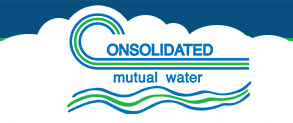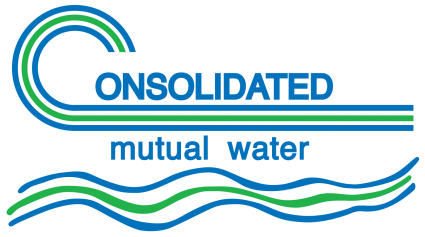Click on a question below to see the answer.
If you don’t see the question you’re looking for, scroll to the bottom and fill out the form or call us at (303) 238-0451.
Is it safe to drink tap water?
Yes! Consolidated Mutual Water Company’s water passes all regulatory mandates. Colorado’s Department of Public Health and Environment and the U.S. Environmental Protection Agency specify all regulations. We have certified, knowledgeable and dedicated Staff who work 365 days a year, 24 hours a day to make sure you have safe, high-quality water delivered to your tap.
Where does my water come from?
The Maple Grove service area receives water from several sources. Approximately 90% of the water is diverted primarily from Clear Creek. Lena Gulch, Coal Creek and raw water delivered from Gross Reservoir make up the remaining 10%.
The Denver Water service area receives water from watersheds that cover over 3,100 square miles on both sides of the Continental Divide. Water is transported from the Colorado, Fraser and South Platte Rivers through Denver Water’s collection system.
Why does my water sometimes smell funny or taste bad?
There are several reasons why water can smell funny or taste bad. For example, water can pick up odors or taste from new plumbing. Also, if you have not turned on your water after an extended period (you’ve been on vacation for two weeks), it can begin to smell different. Most often, taste and odor events occur seasonally during blooms of algae or aquatic plants. While the algae are completely removed during treatment, sometimes the odors persist. Tastes and odors in treated water are not harmful, but we do take steps to try and eliminate them.
Why does my water sometimes appear discolored?
Discoloration is usually a result of the water picking up rust from aging pipes. It is NOT harmful, but it can hurt the water’s “aesthetics.” Long-term discolorations may also be a result of sediment building up in a pipe, and it may be time for cleaning of your service line. If you would like details regarding our service line maintenance plan and to find out if your neighborhood is on the list, or to schedule an appointment with one of our Consumer Service personnel, please call us at (303) 238-0451.
Why does my water look cloudy or milky?
Air pockets are created due to the siphon action when the faucet is closed. The air pockets create small air bubbles which cause the water to look cloudy. The air will dissolve in a couple of minutes.
What chemicals do you put in the water?
Initially, chlorine dioxide is added as a preoxidant to remove taste and odors and dissolved metals. When needed powdered activated carbon, (PAC) can be added for heavier taste and odor events, and potassium permanganate can be added for our heavier manganese events. Then poly aluminum sulfate, (PACL) is added to bind with foreign matter such as dirt particles and organic carbon forming larger clumps that can be removed easily during the first part of the treatment process (sedimentation). After filtration, free chlorine is added to the water to protect the drinking water from potentially harmful microscopic organisms. If needed, a potential of hydrogen (pH) adjustment can be managed with sodium hydroxide to make the water neutral for corrosion control. pH adjustments keep the water from leaching the lead or copper from the pipes within your homes but is normally not needed as our source waters are fairly neutral in pH. Once the water is ready for distribution in the system, we add ammonium sulfate which changes the free chlorine to chloramines. Ammonium sulfate ensures the water doesn’t smell like a swimming pool and is a longer-lasting disinfectant.
Do I need a water filter?
Your tap water is perfectly safe. If you have an internal problem with your plumbing, consider a filter or treatment system.
Do I need to take special considerations for my fish tank?
Yes, you should always use a dechlorinating agent to rid your tank of excess chloramine. Dechlorinating agents are available commercially at most pet stores.
Is there lead in my water? If lead is present, is there anything I can do about it?
Consolidated Mutual Water Company’s water contains no lead in its treated or source water. Lead may be present in existing customer plumbing. According to the EPA, two types of homes may be at risk of lead contamination:
- Pre-World War II constructed homes with lead service lines or lead pipe plumbing; and,
- Homes built between 1982 and 1987, which used copper pipe and lead-based solder.
If your home fits into one of the categories stated above, you should conduct a thorough review of your plumbing system.
Should I be concerned about radon in my water?
No, Consolidated Mutual Water Company uses only surface water such as reservoirs and streams to produce drinking water; there is no Radon in surface waters.
Can toxic spills that seep into the ground or groundwater contaminate my drinking water?
It is highly unlikely that toxic spills on the ground or into groundwater could contaminate Consolidated Mutual Water Company’s drinking water since our treated water system is a closed filtration process.
What are Cryptosporidium and Giardia?
Cryptosporidium and Giardia are microorganisms that can affect human health if they are in drinking water. While both organisms exist in our source waters, none of them exist in our treated water. Effective filtration and the addition of chlorine during the treatment process eliminate the threat of sickness from these organisms.
Can I drink hot tap water?
No, don’t use hot water from the tap for food or beverage preparation. Your hot water systems (tanks and boilers) contain metallic parts that corrode over time and contaminate the hot water. Instead, use cold water and heat it up for warm beverages or food preparation.
Can I access the reservoirs to walk, fish, or boat?
None of The Consolidated Mutual Water Company’s reservoirs are open to the public for any reason, including but not limited to walking, fishing, or boating.
El presente informe contiene información muy importante relacionada con el agua potable. Si quiere esta información en español, lame al 303-628-5986.
Don’t See What You’re Looking For?
Submit a new FAQ using the form below or call us at (303) 238-0451.

